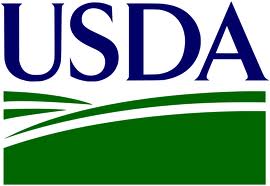 In all sales of goods where the seller is considered a merchant with respect to the goods in question, there is an implied warranty that the goods will be merchantable, which means the goods must be of the quality and type ordinarily acceptable among sellers and buyers. See U.C.C. § 2-314(1). For goods to be merchantable they must, inter alia, “pass without objection in the trade under the contract description.” Id. This means that sellers of perishable agricultural commodities (“Produce“) sell their Produce subject to an implied warranty of merchantability and this warranty is a necessary part of the selling price.
In all sales of goods where the seller is considered a merchant with respect to the goods in question, there is an implied warranty that the goods will be merchantable, which means the goods must be of the quality and type ordinarily acceptable among sellers and buyers. See U.C.C. § 2-314(1). For goods to be merchantable they must, inter alia, “pass without objection in the trade under the contract description.” Id. This means that sellers of perishable agricultural commodities (“Produce“) sell their Produce subject to an implied warranty of merchantability and this warranty is a necessary part of the selling price.
In the Produce industry, the parties to the primary or original sale include the seller of the Produce who sets a sale price based on market conditions and a buyer of Produce who agrees to the sale price based on market conditions and the expectation of a bargained for level of quality. If the seller delivers Produce to the buyer that is rejected or otherwise objectionable based on quality or condition defects, the seller has breached its implied warranty of merchantability because the Produce did not “pass without objection.” A seller’s breach of the implied warranty of merchantability justifies rejection of the Produce or the modification of the contract of sale.
After Produce has been rejected or subjected to objection due to quality or condition defects the Produce is either dumped or sold at a discount as distressed Produce. The sale of distressed Produce constitutes a secondary market sale because it involves the sale of Produce after said Produce was rejected or otherwise subject to a timely quality or condition objection in connection with the original sale. The sale of distressed Produce on a secondary market is materially different than the sale of merchantable Produce on the primary market because merchantable Produce (e.g. unobjectionable and un-rejected) is entitled to a premium. Part of this premium (fair market value) includes the value of any and all express or implied warranties. By way of an example, a new car with full factory warranty costs more than the sale of a used car that no longer has an effective warranty. The presence or absence of warranties affects the value and price of the product. The purchase and sale or Produce is no different.
So how do you value the implied warranty of merchantability?
The first and best method of ascertaining the value the goods would have had if they had been as warranted is to use the average price as shown by the USDA Market News Service Reports. Pandol Bros., Inc. v. Prevor Marketing International, Inc., 49 Agric. Dec. 1193 (1990). The measure of damages for breach of warranty is the difference at the time and place of acceptance between the value of the goods accepted (assuming the contract is modified and the Produce not simply rejected) and the value they would have had if the Produce had been as warranted (e.g. no objection based on quality or condition). See U.C.C. § 2-714(2).
The value of the goods accepted (e.g. accepted after objection and pursuant to a modified sale contract) is best shown by the gross proceeds of a prompt and proper resale. R.F. Taplett Fruit & Cold Storage Co. v. Chinook Marketing Co., et. al., 39 Agric. Dec. 1537 (1980). While PACA’s regulations do not place a duty to account upon a buyer who purchases on an open or price after sale basis, a buyer who fails to account accurately and in detail does so at his own risk, as a properly prepared account of sale may be useful in determining the reasonable value of the goods in the event the parties fail to agree upon a price. A.P.S. Mktg. v. R.S. Hanline & Co., 59 Agric. Dec. 407, 411 (2000); Carmack v. Selvidge, 51 Agric. Dec. 892, 898 (1992).
Buyer’s Risk
This is important because the buyer stands to lose if the parties fail to agree upon a price term after the fixed price term sale contract is modified to reflect open price or price after sale terms. If such a dispute arises and the buyer does not have a proper account of sale the USDA Market News Service Report will be used to decide the disputed price term. This hurts the buyer who elected not to reject the Produce, but rather to change the contract of sale and move the product under open or PAS terms because the USDA Market News Service Report reflects the sale of Produce that passed between sellers and buyers without objection as to quality or condition. As such, the USDA Market News Service Report price information fails to take into account any type of discount for the seller’s breach of the implied warranty of merchantability. You don’t want to be stuck in a position that requires you to defend your returns on the sale of distressed Produce against the reported sale of non-distressed Produce.
The difference between the USDA Market News Report price and the gross sale proceeds identified in a proper account of sale (assuming prompt and proper resale) represents the value of the warranty of merchantability. For example, if the USDA Market News Report price for a given commodity is $5.00 per carton and proper account of sale shows a prompt and proper resale at $2.00 per carton, the value of the warranty of merchantability is $3.00 per carton. Therefore, the value of the distressed Produce (e.g. Produce sold without the benefit of a warranty) is $2.00. Stated another way, the seller could command $3.00 more per carton had its Produce been accepted without objection by the buyer. This also means that without a proper account of sale the buyer would not be in a position to quantify the value of the missing warranty and could be forced to compare its sale of distressed Produce to the market price for good Produce. If this happens, the buyer could lose money on the transaction post-objection based on its own failure to prepare a proper account of sale.

 On October 3, 2014, The Packer reported that “as of October 1, 2014, Canadian produce sellers now have to have a surety bond that’s twice the amount of the claim, so selling $100,000 worth of product will have to have a bond of $200,000.” See
On October 3, 2014, The Packer reported that “as of October 1, 2014, Canadian produce sellers now have to have a surety bond that’s twice the amount of the claim, so selling $100,000 worth of product will have to have a bond of $200,000.” See  Neither the UCC nor the PACA recognize the term “Price After Sale.” The term is a subcategory of “Open Price.”
Neither the UCC nor the PACA recognize the term “Price After Sale.” The term is a subcategory of “Open Price.”  Nothing is more important to a produce company’s cash flow than ensuring the creditworthiness of its customers. This statement begs the question:
Nothing is more important to a produce company’s cash flow than ensuring the creditworthiness of its customers. This statement begs the question:

